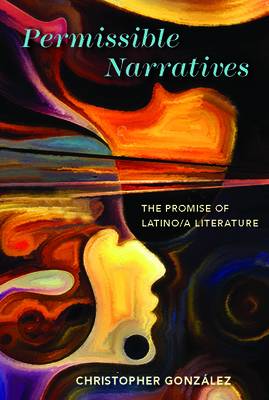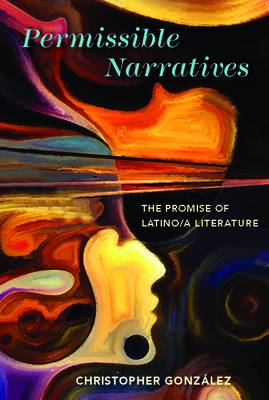
- Afhalen na 1 uur in een winkel met voorraad
- Gratis thuislevering in België vanaf € 30
- Ruim aanbod met 7 miljoen producten
- Afhalen na 1 uur in een winkel met voorraad
- Gratis thuislevering in België vanaf € 30
- Ruim aanbod met 7 miljoen producten
Zoeken
€ 62,95
+ 125 punten
Uitvoering
Omschrijving
In his groundbreaking new study, Permissible Narratives: The Promise of Latino/a Literature, Christopher González examines the difficulties Latina/o writers face in writing beyond the narrow expectations of U.S. readership in the stories they tell. González argues that a constrained conception of the possibilities of storytelling by and about Latinos diminishes the development and progression of narrative form. Through an examination of Latina/o writers against the a priori mode of engaging with nonethnic literature in the United States, González explores the limitations and challenges Latina/o authors have confronted via the shaping power of their narratives to reach a sustainable audience. Bringing together cultural critique, memory, narratology, cognition, and comprehension, González examines Latina/o authors-such as Oscar "Zeta" Acosta, Gloria Anzaldúa, Piri Thomas, Giannina Braschi, Gilbert Hernandez, Sandra Cisneros, and Junot Díaz-investigating how they successfully, and sometimes unsuccessfully, use the expansive canvas of narrative form to capture the imaginations of an open-minded readership. Permissible Narratives highlights both the inequitable accessibility of narrative devices and, crucially, the daring of Latina/o authors to nurture a readership to afford the same literary deference to them that is so often afforded to white, male, straight authors.
Specificaties
Betrokkenen
- Auteur(s):
- Uitgeverij:
Inhoud
- Aantal bladzijden:
- 230
- Taal:
- Engels
- Reeks:
Eigenschappen
- Productcode (EAN):
- 9780814254417
- Verschijningsdatum:
- 5/10/2017
- Uitvoering:
- Paperback
- Formaat:
- Trade paperback (VS)
- Afmetingen:
- 150 mm x 226 mm
- Gewicht:
- 317 g

Alleen bij Standaard Boekhandel
+ 125 punten op je klantenkaart van Standaard Boekhandel
Beoordelingen
We publiceren alleen reviews die voldoen aan de voorwaarden voor reviews. Bekijk onze voorwaarden voor reviews.







